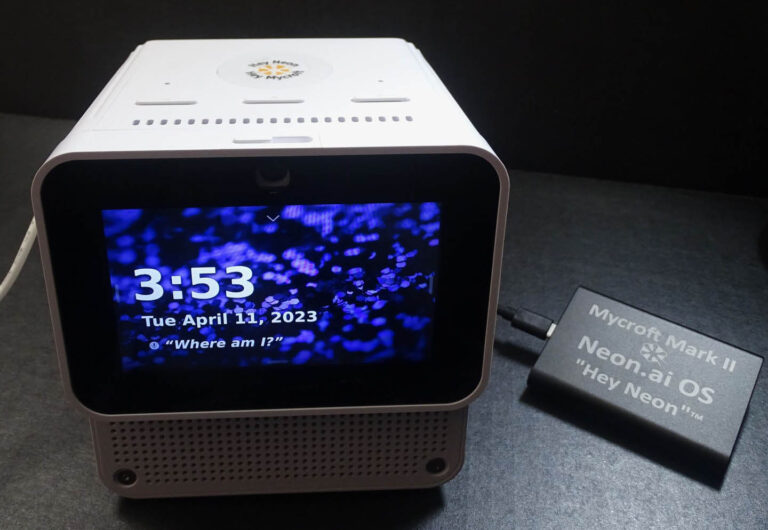Neon AI: An Open Source, Privacy-Centered Voice Assistant

This interview is part of our ongoing series celebrating the versatility of FOSS technologies and their role in shaping diverse aspects of our lives. From advancing life-saving initiatives to enriching our everyday interactions, open source projects demonstrate the far-reaching potential of collaborative development. Today, we delve into Neon AI, a pioneering voice assistant technology that continues Mycroft’s mission of privacy-respecting, open source innovation. In this conversation, we explore Neon AI’s journey, its unique features, and its vision for the future of personalized AI.
What is the Neon AI Voice Assistant Technology, and how does it stem from Mycroft?
Built as part of Neon Core, a suite of tools, Neon AI enables developers to create custom voice AI systems. Unlike Mycroft, which focused on a single assistant, Neon AI supports broader applications, from voice-enabled social media to healthcare assistants and custom voiced LLMs. Neon AI’s voice technology is showcased through a private, open source personal assistant that responds to natural language prompts.
Can you describe the journey of Neon AI as it continues the mission of Mycroft’s Project?
Neon AI has always shared Mycroft’s vision of “AI for Everyone.” When Mycroft launched in 2017, Neon supported the project by contributing to its codebase and brainstorming with the founders as a channel partner. After Mycroft’s discontinuation in 2022, Neon extended its GitHub repository to include Mycroft’s planned enhancements and took over hosting the forum, preserving the community and infrastructure around Mycroft’s technology.
How does Neon AI’s approach to privacy-respecting, open source software differ from other AI Technologies?
Neon AI prioritizes privacy and customizability, unlike mainstream assistants like Alexa and Google Home. Our fully open source voice assistant is available on GitHub and free for commercial use under 1,000 users. It can operate entirely on-device or on local servers, ensuring complete data privacy. We don’t require user accounts or share data, unless explicitly requested for troubleshooting. Users can also access services such as music and ChatGPT with their own credentials.
What challenges and opportunities do you foresee in developing AI voice interaction technology that prioritizes user privacy?
The demand for privacy-centric AI voice technologies is growing, but challenges remain, particularly in developing fast, accurate systems that protect user privacy without relying on large datasets. While many companies exploit data submitted by users, new privacy-oriented opportunities are emerging, especially with LLMs and conversational AI. Edge devices for privately trained AI assistants are now becoming accessible to mid-sized companies.
How does the open source model support and enhance Neon AI’s development?
Much of Neon AI has been built by open source contributors. This model allows collaboration with developers who share our vision. We remain committed to being fully open source, ensuring that developers retain rights to maintain and enhance their work. To encourage independent developers, DIYers, and small businesses we offer our full development package free on GitHub for use by clients serving fewer than 1,000 users.
Looking towards the future, how do you envision the role of open source, privacy-centered voice assistants in everyday technology?
As AI code generation and open source development converge, personalized and privacy-focused voice assistants will become more prominent. The rising performance and affordability of open source LLMs will fuel exponential growth in voice assistants, with increasing demand for both privacy and convenience.
